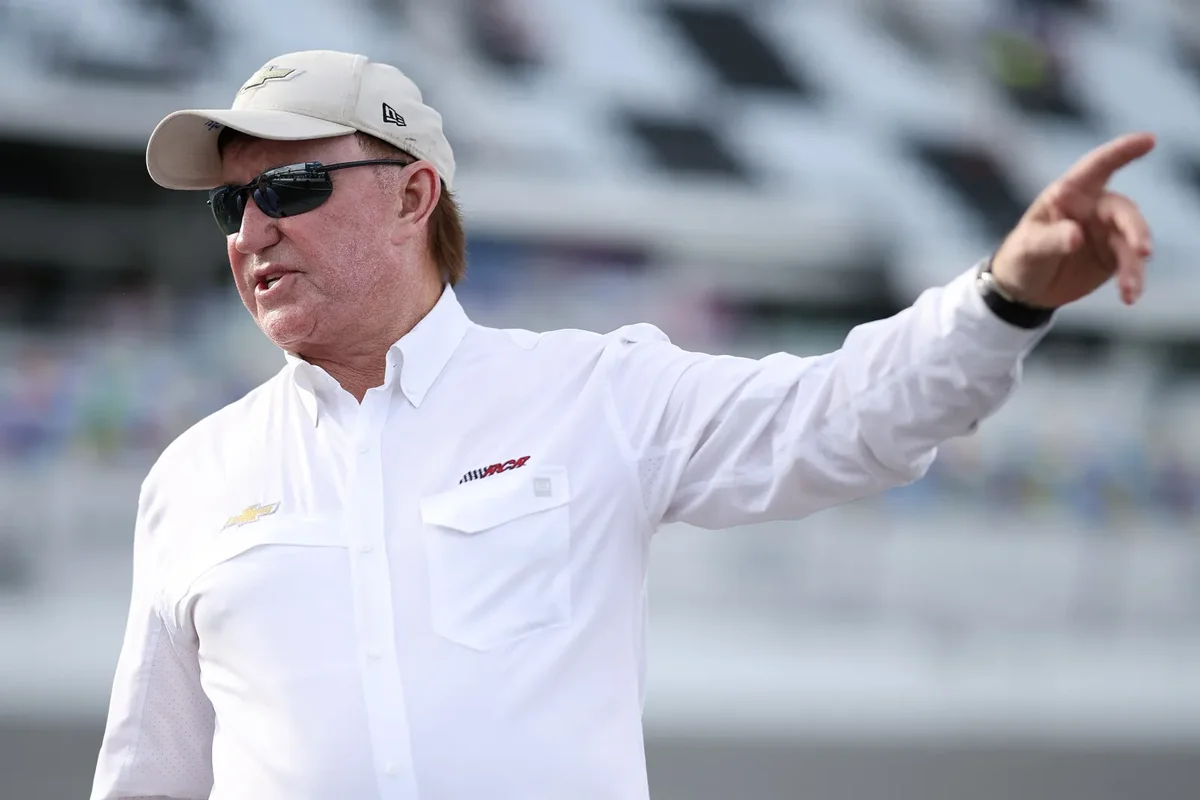The Richard Childress NASCAR controversy has escalated as previously undisclosed messages from senior NASCAR management came to light, intensifying an ongoing antitrust lawsuit involving several prominent teams. These leaked messages and exchanges are raising serious concerns about the sport’s leadership and the stability of its future, just as a decisive trial approaches.
Leaked Texts Expose Friction at the Top of NASCAR
Recent developments in the antitrust case against NASCAR have been marked by the emergence of text conversations from years past, now forming a pivotal aspect of the legal battle. These previously private communications, brought forward publicly by sources such as Matt Weaver on X, have brought into question the intentions and integrity of NASCAR’s leading officials, as well as their approach to handling dissent within the organization.
Central to the controversy are exchanges involving Steve O’Donnell and Phelps. The two figures discussed at length their reactions to Denny Hamlin’s involvement in the discontinued SRX series. While official statements had attributed the series’ cancellation to dwindling popularity, the recently surfaced messages have suggested far more contentious motives were at play.
With the release of these texts, the legal footing of NASCAR has weakened, as details about internal discussions and attitudes toward key figures, such as Richard Childress, have carried significant weight in shaping the narrative. The messages also revealed broader anxieties within the leadership regarding the 2030 and 2031 Cup Series campaigns, notably as officials debated the structure and sustainability of team finances and agreements.
Management’s Attitude Toward Richard Childress Sparks Backlash
In one of the most damning exchanges, officials discussed the necessity of gathering all team owners to renegotiate terms, especially beyond the 2030 NASCAR season. According to the evidence highlighted, Brian Herbst initially proposed a meeting with all owners to address compensation and future viability. Phelps agreed in principle, but in a follow-up, made a controversial statement directed at Richard Childress:
Childress needs to be taken out back and flogged. He’s a stupid redneck who owes his entire fortune to NASCAR.
—Phelps, NASCAR Official
Further texts recorded Phelps using derogatory language towards Childress, even referring to him as an “idiot,” “dinosaur,” and “as*-clown.” Phelps’s position suggested that if Childress disagreed with the management’s approach, he should simply consent to contract extensions or sell off his team’s charter, rather than continue to voice objections. Although there is some ambiguity about the exact context, the discussions appeared to focus on the highly debated charter agreement and the distribution of financial resources within the sport.
This controversy comes at a time when both Front Row Motorsports (FRM) and 23XI Racing are locked in opposition to aspects of the charter system, and Richard Childress Racing (RCR) indicated dissatisfaction, even though Childress ultimately signed the agreement. The exposure of these blunt and dismissive remarks has intensified public scrutiny of NASCAR’s top leadership, stirring turmoil among officials and stakeholders alike.
Implications for NASCAR’s Leadership and the Upcoming Jury Trial
The accumulation of leaked communications suggests a concerted effort by NASCAR officials to maintain control over the stock car racing landscape, while forcefully marginalizing voices of dissent among team owners. These revelations complicate the legal defense of NASCAR at a crucial juncture, with a jury trial slated to begin in December. The organizational rift triggered by the Richard Childress NASCAR controversy now casts uncertainty not only on current management, but also on the sport’s long-term viability and integrity.
As the proceedings move forward, the intense spotlight on officials such as Phelps, Steve O’Donnell, and Brian Herbst underscores the challenges facing NASCAR in rebuilding trust with both teams and the wider fan base. The outcome of the jury trial will likely play a defining role in determining how NASCAR handles internal disagreement, manages its relationships with prominent owners like Richard Childress, and charts a path forward for the future of professional stock car racing in the United States.
There's a lot here in this August 30 2023 text thread with Steve Phelps, Steve O'Donnell and Brian Herbst
There's not great conviction in their broadcast chances in 2030/31 unless the sport is in a better place
They were really frustrated with Richard Childress at the time pic.twitter.com/a8lR7VxCsW
— Matt Weaver (@MattWeaverRA) November 22, 2025
